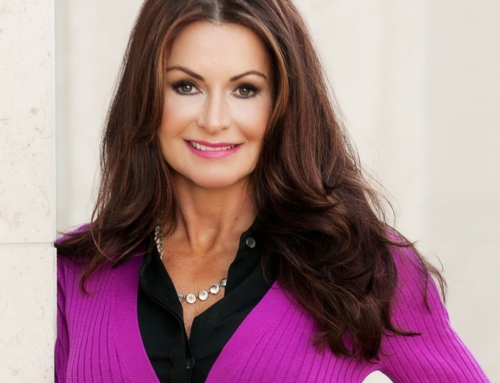Natalie Gillespie is editor-in-chief of God’s Greenery, the first online community where Christians can access reliable information, research and stories about the uses of CBD. An award-winning author, journalist, and national speaker, Natalie has published more than 2,000 articles in the last 20 years in magazines and websites such as Guideposts.com, HomeLife, Christianity Today and Publishers Weekly.
Some of her books include “Stepfamily Success” (Revell), “Successful Adoption: A Guide for Christian Families” (Thomas Nelson), “Five-Star Living on a Two-Star Budget” (with Margaret Feinberg, Harvest House), and “You Were Made to Make a Difference” with New York Times bestselling author Max Lucado and Jenna Lucado Bishop. A mom, stepmom, and adoptive mom of nine kids, Natalie and her family make their home in Tallahassee, Fla.
Thank you so much for doing this with us! Can you tell us the “backstory” about what brought you to the cannabis industry?
God’s Greenery did! A mutual friend introduced me to Michael Klein, CEO of God’s Greenery. Michael had me come onboard as editor-in-chief of the site in January of this year. I had a long history of writing in the Christian faith space, but little experience with CBD. Michael and I decided that would make the editor role more authentic – I could lead the charge of education, scientific study, and research just ahead of my readers. I could provide trusted information to them, discover alongside them, marvel in personal testimonies, and ultimately build genuine community.
Can you share the most interesting story that happened to you since you began leading your company? Can you tell us what lesson you learned from that?
The most interesting stories are the personal testimonies of relief my readers find after starting their own CBD journey. I encounter stories like this all the time from people who visit God’s Greenery.
Most common are the readers who run out of treatment options with their doctor. The many parents who used CBD oil to kick their doctor-prescribed painkiller habit. I read one recently where a mother treated her young daughter with severe autism using CBD tincture. The treatment not only improved the debilitating symptoms of autism, but the girl began talking and connecting with her family for the first time ever!
The lessons I learn every day when I talk to people with stories like this is that there are real results. Even if regulation has not caught up yet and even if some say CBD is nothing more than snake oil – you simply cannot discount the sheer volume of people’s personal testimonies around CBD and how it has helped their lives.
Can you share a story about the funniest mistake you made when you were first starting? Can you tell us what lesson you learned from that?
I do not know if I have a funny mistake, but it is funny to me to see the looks on friend’s and family’s faces when I tell them about God’s Greenery for the first time. There is a learning curve that must be conquered before they understand that I am not trying to sell them – or anyone else – pot! Despite its huge, visible presence everywhere, many Christians lack basic knowledge of what CBD is and what it does and does not do. That’s exactly why God’s Greenery was created and what we hope to do – educate and build thoughtful community around the topic of wellness for body, mind and spirit – through the lens of CBD.
Do you have a funny story about how someone you knew reacted when they first heard you were getting into the cannabis industry?
I am a conservative Christian mom, stepmom, and adoptive mom of nine kids. The week after I got the call from CEO Michael Klein, I had a huge argument with one of my young adult sons over whether the recreational use of marijuana is acceptable for someone who loves Jesus and follows Him. The argument wasn’t funny. It was, however, ironic that I was considering a position as editor-in-chief of a cannabis website.
I had to think long and hard about it – and pray about it – but shortly after that confrontation with my son I accepted the position. We are living in a “new normal” in this country with regards to cannabis. I believe if the people who profess to follow Christ do not get educated about it, we become what we are often accused of being – narrow and judgmental.
At God’s Greenery, we are not advocating for everyone to use CBD. We are just saying if you want to have an authoritative voice – you need to know what you are talking about. If Christians do not learn enough to articulate clearly why they are saying yes or no to CBD, they do not get a seat at the table in this cultural conversation. If Christians don’t have a seat at the table, Jesus doesn’t either.
None of us are able to achieve success without some help along the way. Is there a particular person who you are grateful towards who helped get you to where you are? Can you share a story?
My father, Gordon Nichols, has always been the biggest inspiration to his four children. Every single morning, without fail, he pings our phones with a Bible verse of the day, an inspirational quote, and a statement of how much he loves us. Some people do not have a dad in their lives, so I think their image of God the Father is really skewed. I have the best dad. He knows how to love and influence people, and I think that has helped make it easy for me to believe in and love God.
Are you working on any new or exciting projects now? How do you think that will help people?
The biggest thing we have discovered at God’s Greenery is that people want to try CBD, but have no idea how to trust product sellers. For Christians, once the understanding is in place that CBD does not get users high and could have tremendous health benefits, they want to know who to buy it from, how to make sure it has been tested by a third-party lab, how to trust that lab, and how to interpret those lab results. As the God’s Greenery community grows, we will have exciting next steps for our readers. There will be more details to come in 2020.
Ok. Thank you for all that. Let’s now jump to the main core of our interview. Despite great progress that has been made we still have a lot more work to do to achieve gender parity in this industry. According to this report in Entrepreneur, less than 25 percent of cannabis businesses are run by women. In your opinion or experience, what 3 things can be done by a)individuals b)companies and/or c) society to support greater gender parity moving forward?
I think women do work in cannabis, but maybe not as much on the product side. I see women thinking outside the box in the industry, such as Carla Ashburn in Brooksville, Florida, who saw a need two years ago for someone to begin educating medical professionals about cannabis when medical marijuana became legal in Florida. She has been able to work with doctors to help them navigate the cannabis space, and she works with patients who need assistance with their medical cards. Her business is one you might not see “counted” in the cannabis space. I think women are also in the scientific study side and medical side. We’re here. I think sometimes we just tend to be more on the people side than the product side.
Honestly, I don’t think it is always helpful to see gender as a dividing line between us. Women are as capable of being entrepreneurs in this space as men. If there are not as many of them, is it because they can’t or because they’re watching the space before diving in headlong? Women help, nurture, inspire personal growth and health — maybe the jury is still out for some women on whether legalized, widespread use of cannabis is going to help or hurt us overall as a society.
Women are intuitively geared toward aligning ourselves with what will make us better, even if that means not jumping on board the latest and greatest that might earn us the big bucks. Money is not everything. Sometimes watching and learning instead of jumping into the fray immediately is okay. As the positives and negatives continue to unfold through scientific and medical study, I think you will see women’s roles in the industry evolve.
Inequality is not okay. If women are not being permitted to have a voice, if salaries are lower, if our voices are discounted when we do take a seat at the table, none of that is okay. I think companies should recognize that with compensation equality and a better mix of genders in the “power positions” within corporate structures.
You are a “Cannabis Insider”. If you had to advise someone about 5 non intuitive things one should know to succeed in the cannabis industry, what would you say? Can you please give a story or an example for each.
- Get educated. Throw out your preconceived notions and take a fresh look at this plant. Learn the positives and the negatives so you can speak intelligently.
- Listen more than you talk.
- Love People. There are so many clamoring voices and people who intentionally harm others. As in any business with a product that may have the potential to help or harm – we need to develop the things that will heal. Helping people is far more satisfying than making that next big pile of money.
- Think creatively. There is the obvious product development side, yes, but there is lots of peripheral and ancillary opportunity as well. What can you do that’s different? God’s Greenery is the exclusive place to go to learn about CBD through a faith lens, and that is fascinating people. There are tons of CBD sites that consider body and mind – but we’re the only one that offers body, mind, and spirit.
- Stay current. The cannabis space is changing so fast – regulations, federal, state, business opportunities, medical, science – it’s mind-boggling. Pioneers in the space have a responsibility to function at an expert level. There is no room for guessing what CBD is and how it should be produced, because it creates an industry of “bad actors.”
Can you share 3 things that most excite you about the cannabis industry?
- The possibility of hemp-derived CBD products helping people overcome addiction to opioids and substances that destroy lives.
- Reliable scientific studies that can now study the health impact cannabis has as medicine. Such studies were largely unavailable in the past due to cannabis being classified a controlled substance.
- The personal stories of people finding hope and healing after losing all hope of recovery.
Can you share 3 things that most concern you about the industry? If you had the ability to implement 3 ways to reform or improve the industry, what would you suggest?
- I am concerned that CBD is sold everywhere by everybody with no government mandated safety oversight. Some products have terrible things in it like heavy metals and pesticides. Some of it has little or no CBD.
- I think we do not know enough about how long-term, widespread recreational use of cannabis will affect society. Jumping first and figure it out later feels a bit reckless to me.
- Taxing and banking are a major area of concern. Financial regulation has not caught up with demand yet.
What are your thoughts about federal legalization of cannabis? If you could speak to your Senator, what would be your most persuasive argument regarding why they should or should not pursue federal legalization?
My thoughts are that man always thinks he can improve upon what God made – pharmaceuticals, household cleaners, health and beauty products, foods – when we are now finding out more and more that nature does it best. When sailors used to battle scurvy, they did not do what science does – grab a lime and extract the Vitamin C, thinking that one ingredient provides the total miracle cure. Instead, they just ate the lime and got the vitamin C, plus the flavonoids and terpenes and other natural ingredients that synergize with the Vitamin C to make it even better for the body. Food is not healthier when it is processed and packaged. Chemicals for cleaning might work, but so do lemon oil and white vinegar. I think cannabis is a plant God made. And God did say everything He created was good. I don’t think that is a blank permission slip to use every plant He gave us in our bodies. I don’t want to demonize cannabis to the point that we won’t permit ourselves to study it to see what health benefits it has.
Today, cigarettes are legal, but they are heavily regulated, highly taxed, and they are somewhat socially marginalized. Would you like cannabis to have a similar status to cigarettes or different? Can you explain?
At God’s Greenery, we focus exclusively on hemp-derived CBD. While regulations should be applied to ensure product safety, I don’t think it should see a similar tax work up to that of cigarettes.
Can you please give us your favorite “Life Lesson Quote”? Can you share how that was relevant to you in your life?
As a prolific reader, there are so many! But today I’m going to go with Ephesians 2:10, a New Testament verse. I particularly like the amplified version for this one. In fact, when I married my husband almost 24 years ago, we had it printed on our wedding programs. We had both been through some tough, tough times when we met. This Bible verse is so hopeful. More than two decades later, I can say I still believe it is absolute truth and have seen it play out in my own life.
“For we are His workmanship [His own master work, a work of art], created in Christ Jesus [reborn from above—spiritually transformed, renewed, ready to be used] for good works, which God prepared [for us] beforehand [taking paths which He set], so that we would walk in them [living the good life which He prearranged and made ready for us].”
I want to be transformed, renewed, and ready to be used by God for good works.
You are a person of great influence. If you could inspire a movement that would bring the most amount of good to the greatest amount of people, what would that be? You never know what your idea can trigger. 🙂
I would “crowdsource” knowledge around orphan advocacy and “crowdfund” for adoptions and post-adoption support and resources so every single child on this planet without a family would know the love and security of one. There are millions of orphans around the world, and millions of scared or financially limited people who would bring a child home if they had more knowledge, financial resources, and post-adoption support.
When we set out to adopt our twins 10 years ago, everyone asked me, “Isn’t adoption so expensive? How much is it going to cost?” When I told them $50,000, they blanched. For the average family, that’s impossible. It was impossible for our family! But then I would say to those same people, “But there are more than 325 million Americans. I only need to find 50,000 of them to give one dollar.” When I broke it down, people gave me a dollar everywhere I went – at the grocery store, the gas station, in restaurants. When we work together, we can move mountains.
Our girls joined us in January 2010, and they are the most amazing human beings I’ve ever met. If we had not stepped out in faith to adopt, I would have missed the biggest blessings of my life. Even thinking about that makes my heart clutch. So, yeah, that would be my movement. Love a child who needs you.

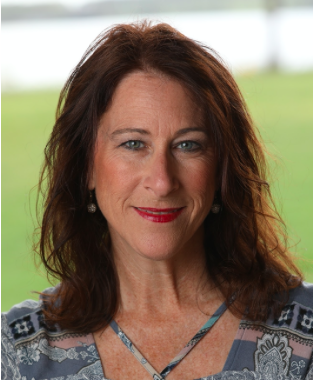
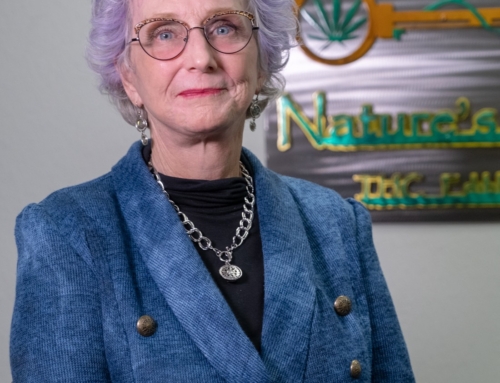
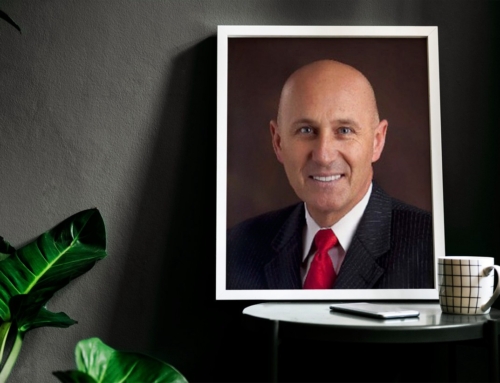
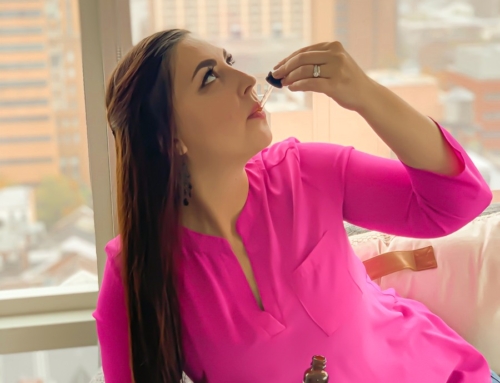
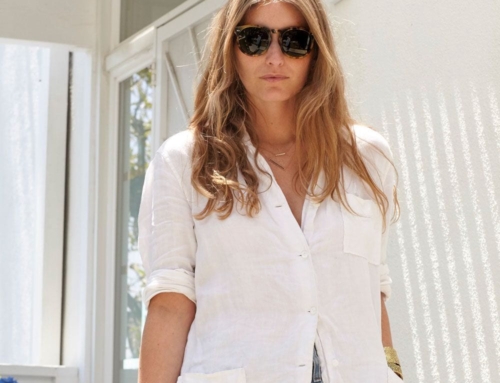
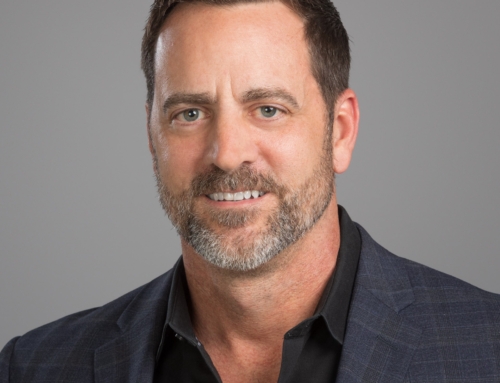
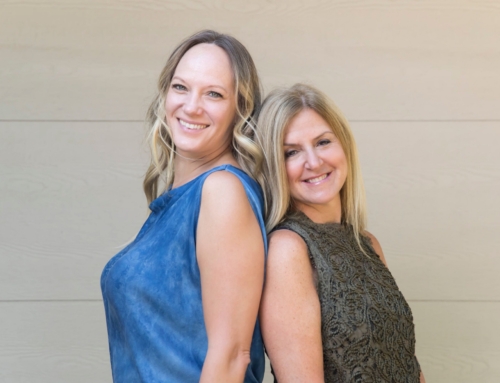
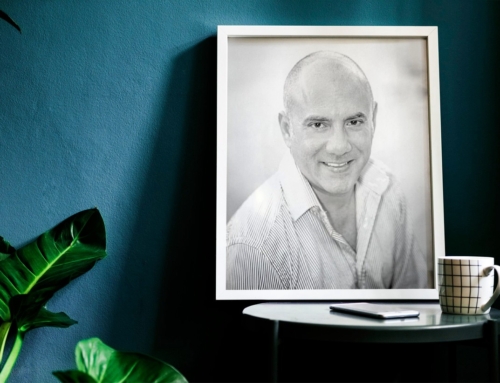
![“The potential to help people [in this industry] is enormous, but there’s still so much to learn.” – Ramon Alarcon, Witi](https://lakesideremedy.com/wp-content/uploads/2020/12/1thj5ekUyxQ69iLz1JJyODg-scaled-e1607882756286-500x383.jpeg)
